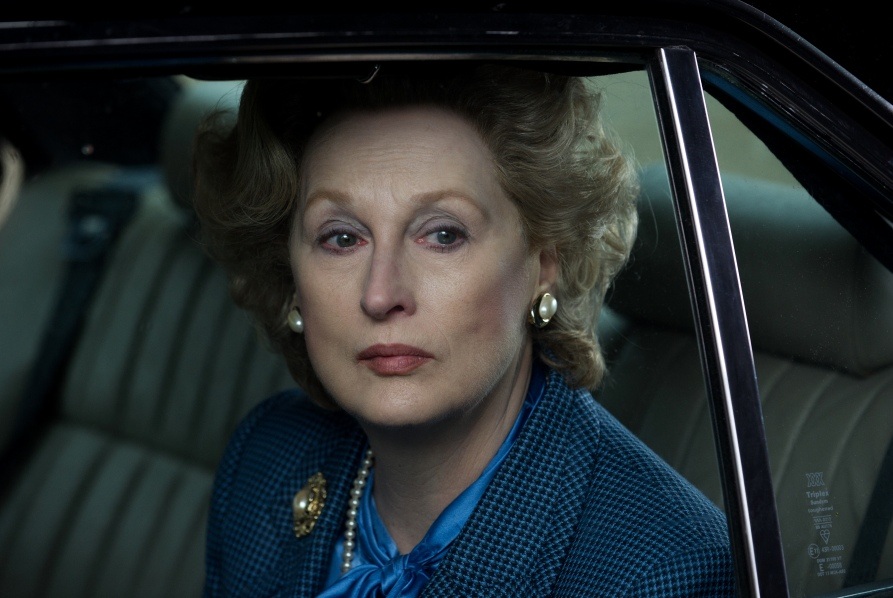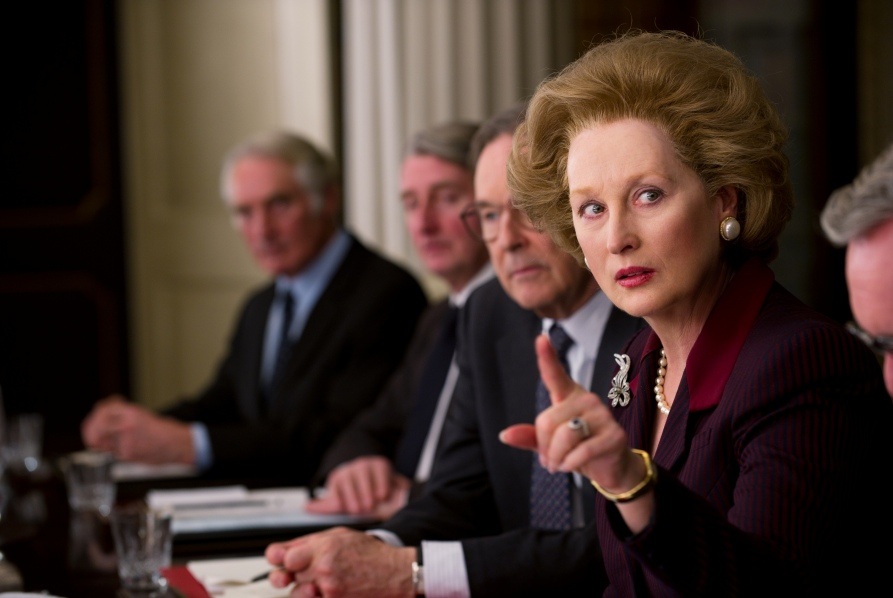|
The Iron Lady
Reviewed
by
Sophie Whin on
December 19th, 2011
Icon Film Distribution presents
a film directed by
Phyllida
Lloyd
Screenplay
by
Abi Morgan
Starring:
Meryl
Streep, Jim Broadbent, Anthony Head and Olivia Colman
Running
Time:
105 mins
Rating:
M
Released:
December 26th,
2011
|
8/10
|
|
It seems Meryl
Streep can do no wrong when it comes to dramatic representations on the
silver
screen. Her latest turn as the formidable Margaret Thatcher in Phyllida
Lloyd’s
The Iron Lady is powerful and compelling,
with the supporting cast and framing only adding to her stellar
performance. Lloyd’s biopic takes
us through Thatcher’s rise to prominence and her eventual inauguration
as
Britain’s first female Prime Minister. Unlike most retrospectives of
powerful historical
figures, The Iron Lady is told in
flashback from the perspective of Thatcher, whose early onset dementia
and her
inability to deal with her husband’s death ten years prior has clouded
her
recollections of the past and present. The events surrounding
Thatcher’s
emergence as a key world leader are intercut with highly personal
scenes
involving her daughter Carol (Olivia Coleman) and hallucinations of her
husband
Dennis (Jim Broadbent), which provides a telling behind-the-mask
glimpse of a
woman whose moment in the sun is drawing to a close. Footage from
newsreels and
broadcasts is also used to delve into her stance concerning trade
unions, the
days leading up to the Falklands War and the assassination attempt by
the IRA.
Lloyd is able to seamlessly balance the real life material with
Thatcher’s
defining political policies, allowing the film to develop a definitive
grounding in terms of fact versus fiction.

I was initially
sceptical of an American actress playing arguably Britain’s most
recognized
female figure. Not only is the entire supporting cast comprised of
recognizable
faces from throughout the UK but the very idea that the stunning Meryl
Streep would
deface herself with false teeth and layers of prosthetics was surreal.
I was pleasantly
surprised when Meryl Steep delivered a performance so remarkable it
makes you
wonder who else on Earth could have possibly played the role. What is
even more
miraculous about Lloyd’s picture is the subtle glimpses of comedy from
both
Streep and Broadbent as they attempt to navigate the drama concerning
Thatcher’s psychological degeneration. Perhaps it was somewhat risky to
portray
the great woman at the end of glory days but Lloyd manages to find a
silver
lining in the eccentrics of Thatcher’s personality and her
relationships with
the people around her. Broadbent, Coleman and Anthony Head are
exemplary in
their individual roles, with Head’s Geoffrey Howe struggling enormously
with
ideals of his political party and those of his party leader. The
cabinet scenes
and parliament debates are charged with elements of backstabbing and
intrigue,
with the scenes involving Thatcher definitely alluding to the concept
of ‘It’s
a man's world’. In this respect Lloyd veers away from a commentary of
Thatcher
as leader and instead ingests the character as a human being caught up
in a
time of vast social and economical change.

The only drawback of
The Iron Lady is its inability to
explore new material concerning Thatcher’s political career. Lloyd
chooses to
focus on the personal side of Streep’s character, using her time in
power as a
backdrop, but it would have made for an entirely more rounded portrayal
if we
were witness to the day to day running of government. It is Meryl
Streep’s
‘balls of steel’ presentation of Margaret Thatcher that is the film’s
main
drawcard. Dubbed the ‘Iron Lady’ by her contemporaries, Streep’s
Thatcher is
more sympathetic and tinged with humanity, which makes for a highly
enjoyable
and balanced viewing. With the Academy Awards just on the horizon Meryl
Streep
has surely got this in the bag.
|